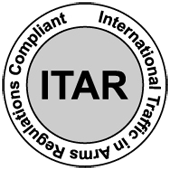- Services
- Metals (overview)
- Plastics (overview)
- CAD Design
- Rapid Prototyping
& Rapid Tooling - CNC Machining
- Finishing & Assembly
- Rubber Plaster Molding
- Precision Airset Sand Casting
- Graphite Mold Die Casting
- One-Shot Casting
- Reaction Injection Molding (RIM)
- Rapid Injection Molding
- Design for Manufacturability (DFM)
Technical Information: Rapid Injection Molding
Download the PDF version of this document
Cast kirksite cavities from SLA models can provide excellent Rapid Tools for prototype and bridge to production injection molded parts. Parts can be molded in 2-3 weeks in the correct thermoplastic production material.
Benefits of Rapid Injection Molding
- Prototypes in production material in 2 -3 weeks.
- Allows for full fit and function testing.
- Discover design flaws early on. Low cost tooling allows for ease of geometry modification and design refinement.
- Bridge to production process- molds can run thousands of parts.
What is Cast Kirksite Tooling?
Kirksite is an aluminum/zinc alloy ( 4% Al, 3% Cu, 92% Zn). This technology is not new, and in fact has been around for many years, but with the advent of CAD and rapid prototyping, it has reemerged and proven very complementary to these computer-aided tools.
Cavities are poured using the Rubber Plaster Mold (RPM) process, also known as plaster mold casting, then fit into standard DME mold bases with standard injector and runner systems. Heating and cooling lines may be added as needed.
Size
Best suited for 2 in. to 20 in., complex shapes with compound curves and angular geometry.
Tolerances
General, as molded tolerances:
0 - 2 in. +/- 0.010 in.
2 - 3 in. +/- 0.012 in.
3 - 6 in. +/- 0.015 in.
6 - 12 in. +/- 0.000 in.
12 - 18 in. +/- 0.030 in.
Tolerances in molded parts can be improved in "critical to function" areas by machining local areas in the mold or performing secondary CNC machining of parts.
Download the PDF version of this document




